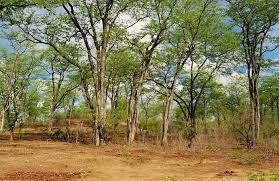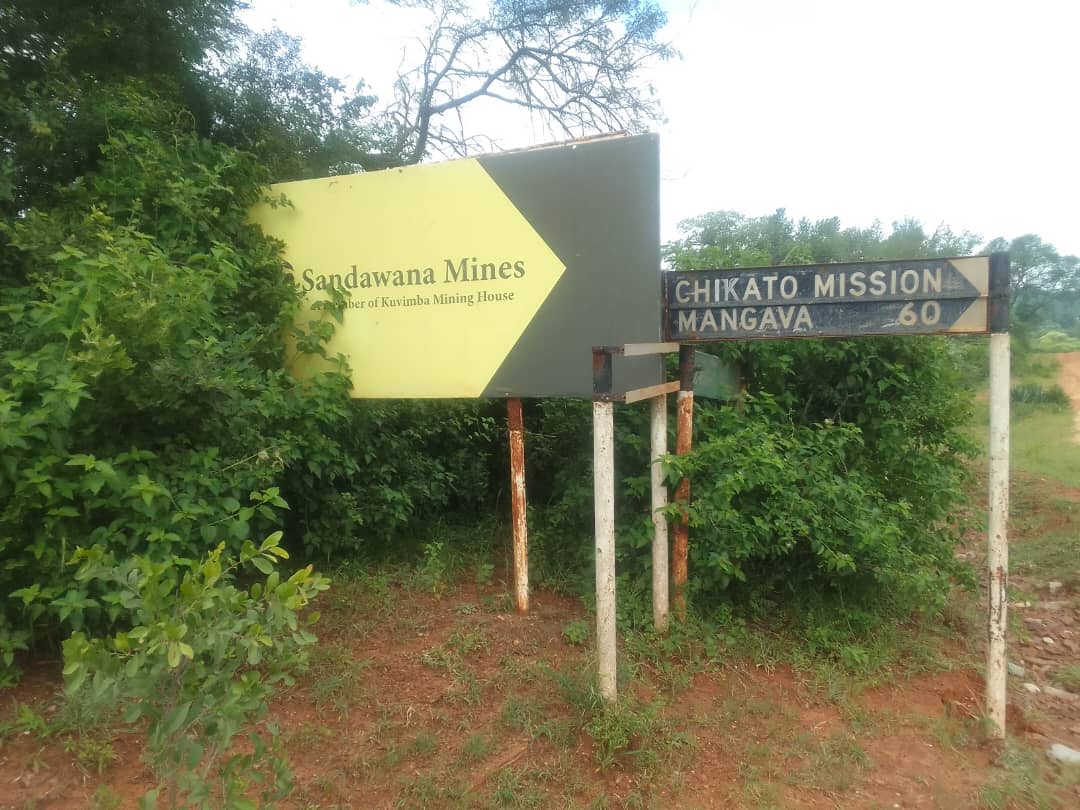… as charcoal production, privatization of communal land disrupts natural ecology
Moses Ziyambi
BEITBRIDGE – Sinikiwe Ncube (46) lives with her three children in Mazwi village under Chief Malaba, in Matabeleland South.
Her family has been surviving on harvesting mopane worms for many years. However, over the past few years, the mopane worm population has been diminishing, threatening her family’s livelihood and food sovereignty.
Mazwi village is one of the driest parts of Zimbabwe. The rocky infertile soil, coupled with erratic rainfall patterns and excruciatingly high temperatures are hostile to crop farming. Villagers who insist on growing crops have had to painfully watch the crops wilt under the merciless heat.
Aid agencies have had to move in to assist villagers from persistent food shortages. It is survival of the fittest, even for any other living organism, including vegetation.
Few trees have survived the scorching environment and one such tree, the mopane tree, is found in the isolated patches of dense forests. It is in these forests that local community members are deriving their livelihood through harvesting mopane worms. Local community members also use the mopane tree for various others uses such as timber for craftwork, small household items, fence posts, hut poles and firewood.
Some companies use the mopane tree in the manufacturing of mine props, railway sleepers, and sometimes parquet floors. During the winter season the mopane trees turn leafless, presenting a picture of misery in the village. However, the scenario changes drastically in summer when the beauty of the mopane leaves is not only attractive to the human eye.
The mopane worms hatch from the eggs that are laid underneath the mopane leaves. Soon after hatching, mopane worms start to feed from the leaves of the mopane tree.
Voracious eaters that can defoliate a tree in their continuous feeding habit, Mopane worms usually appear a few weeks after the rains during the early summer season. After defoliating one tree, they move on to the next tree. The process is repeated until the caterpillars have reached the next stage of their life cycle at which they will undergo metamorphosis underground.
Soon after the appearance of the mopane worm, the forests become alive with scores of villagers scouting from tree to tree, picking the worms in what has become an annual ritual in Mazwi village. Hundreds of people, from Matabeleland South province and elsewhere converge in the forests.
“When the time for harvesting mopane worms comes, all activities in the village grind to a halt as villagers scramble to collect the worms. The harvesting is not regulated and each family will be collecting as much as they can. At times I have to stop my children from going to school so that they help me to collect mopane worms.
“Some mopane trees are very tall and this requires a lot of dexterity for one to climb the trees and unpluck the worms that fail to fall off after a violent shacking of the branches. The worms are very prickly and one has to handle them with care. They also ruin the skin and clothes with some brownish substance they excrete when you touch them,” says Ncube.
After collecting the worms, Ncube says the next step is to squeeze out the entrails and this she says is not a task for the faint hearted.
The community has constructed a processing centre for packaging, storing and selling the mopane worms.
The Matobo Processing and Value Addition Centre is a project with a membership of 57 community members (49 women and 8 men) who came together to initiate strategies to add value to local natural resources. The project buys mopane worms from the community members and packages them for sale to urban markets where the prices are higher.
“This project is a huge investment. We had to look for additional funding from development agencies to ensure that it is up and running. We are, however, worried about the future of this project because the mopane worms are no longer found in abundance,” says Ncube.
Ncube says she used to harvest as much as 18 (20-litre) buckets of worms per season, but in the past three years she has only managed to harvest an average of four. She says the depleted harvest has left her family and the community at large in a precarious economic position.
“Amacimbi are an important component of my family’s welfare and diet. I have been managing to pay fees and buy school uniforms from selling amacimbi,” says Ncube.
The income from selling mopane worms has been a lifeline for people who own shops at the nearby Tshelanyemba business centre. Villagers bring brisk business at the centre after they have sold their mopane worm harvests. The decline in the mopane worm population is triggering anxiety among villagers and businesses. The Matobo Processing and Value Addition Centre is one of the businesses seriously affected.
The impacts of losing the mopane worm population Community members say that the decline in mopane worm population is due to the charcoal vendors, mainly from outside the Matabeleland region. They say that the charcoal vendors have brisk business in cities, where there is poor supply of electricity resulting in the use of charcoal for cooking.
“Some people go to the forests and cut down big mopane trees to process them into charcoal. They do not consult local people and they do that without authorization from anyone. They are mainly bands of young unemployed youth who do this job because it is labour intensive. After processing the charcoal they hire trucks to transport the charcoal to urban centres during the night to evade police checkpoints because they know it is illegal,” says Ncube.
Ncube adds that if this destruction by people from outside her community is allowed to go unchecked, all the community investments and livelihoods would be destroyed. Environmental activists concur with Ncube that the fast depletion of Mopane trees calls for immediate action.
Gertrude Pswarayi, the Country Coordinator for the Participatory Ecological Land Use Management (PELUM) Zimbabwe, says that the decimation of Mopane trees in Matabeleland South is associated with the general decline in forests around the world, mainly to meet the rapidly growing demands for food, fresh water, timber, fibre and fuel.
“Forests are disappearing all over Zimbabwe and the sad fact is that it is the poor rural communities, such as the villagers in Mazwi, who have to bear the negative effects of the decline in ecosystems,” says Ms Pswarayi.
She added that the harmful effects of the degradation of forests and other ecosystems are contributing to growing inequalities and disparities across groups of people leading to cases of conflict.
She says for many families in Matabeleland South, men leave their villages to go to other parts of the country or across the border to look for better paying jobs, leaving women to depend on the depleted environment in order to survive.
“The reliance of the rural women on forests is rarely measured and thus typically overlooked in national statistics and poverty assessments, resulting in inappropriate strategies that do not take into account the role of the environment in poverty reduction,” says Pswarayi.
She also says human cultures, knowledge systems, religions, and social interactions are strongly influenced by forests and other ecosystems.
“The mopane tree and the mopane worm have fostered a distinct way of life for the people in Matabeleland south. Diverse cultural expressions in the form of ceremonies have emerged and these cultural expressions are tied to a deeper understanding of the environment that the villagers depend on,” says Ms Pswarayi.
Current efforts to stop the decimation of forests have in some cases worsened the plight of rural villagers.
Many initiatives involve the privatization of land and all the resources in the acquired land.
Some mining companies have been allocated large tracts of land and sealed them off from villagers, thereby depriving them of their livelihood. The mining companies have total control of their concessions and villagers find themselves being treated as trespassers.
With the decline in mopane worms, Sinikiwe Ncube and other villagers in Mazwi continue to see their food sovereignty threatened. They want action as soon as possible so that their lives return back to the glorious days when they could fill many buckets of amacimbi while living in harmony with nature.








